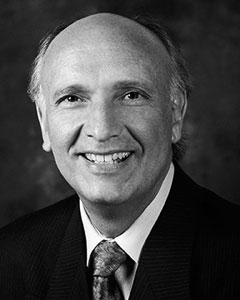Mindfulness-Based Stress Reduction (MBSR) – An excerpt from my book “A Doctor’s Guide to Alternative Medicine: What Works, What Doesn’t, and Why – Foreword by Dr. Bernie Siegel
My son Larry Borins who is a psychotherapist and social worker is offering a new Mindfulness workshop that combines Mindfulness and Cognitive Behaviour Therapy (CBT). There is only a few spots left. For more info, please visit THE MINDFUL WAY.
You can order ‘A Doctor’s Guide to Alternative Medicine’ from melborins.com or Indigo.ca.

Mindfulness-Based Stress Reduction (MBSR)i is a program founded by Jon Kabat-Zinn in 1979 in the Department of Behavioural Medicine at University of Massachusetts Medical Center. Patients were taught to develop non-judgemental, moment-to-moment awareness of thoughts, feelings, and body sensations through a number of mind-body practices. Many subsequent programs have been modeled on this one, and a number of research studies have shown the approach useful for many divergent conditions.
WHAT IS MINDFULNESS MEDITATION?
Meditation is the intentional self-regulation of attention from moment to moment. Mindfulness is a non-judgmental and non-reactive way of paying attention in the present moment to what is happening within us and around us whether we are meditating or doing something active. It has its roots in Buddhism and yogic traditions. Rather than restricting attention to one focus point, as in Transcendental Meditation, this approach emphasizes detached observation of a constantly changing field of focus points. At first, patients learn to concentrate on one focus point such as the successive inflow and outflow of breaths; then they are trained, over a number of sessions, to expand their field of attention to include all physical and mental events like body sensations, thoughts, memories, emotions, perceptions, intuitions, and fantasies.
In awareness meditation practice, no event is considered a distraction but simply another object of observation. No mental event is accorded any relative or absolute value or importance in terms of its content. All thoughts are just noted as they arise and are not judged. The implication is that, when we pay attention without judgement, we see things more clearly and develop a greater understanding of why things are the way they are. The intention is to approach each moment with more calmness, clarity, and wisdom. The patient is taught to respond consciously rather than react automatically to events. Patients are taught to be more mindful of what is occurring in the body, to be less judging, and more accepting of themselves and life’s challenges, and to be more compassionate and kind with themselves and others.
WHAT IS THE MINDFULNESS-BASED STRESS REDUCTION (MBSR) PROGRAM?
Usually the program runs for eight to ten weeks in a small group setting. Patients attend once a week for two hours and usually there is a 6-hour intensive meditation retreat held in the sixth week of the program. There is one hour of homework per day, six days a week, to learn and practice the techniques of mindfulness (logging self-observation, readings, and meditation).
Patients are often given audio tapes to help with daily practice. Mindfulness meditation practice includes:
- Doing a ‘body sweep’ or ‘scan’ while being non-critically aware of posture, movement, resistance, spatial orientation, and using periodic suggestions of relaxation and breath awareness;
- Mindfulness of breath, thoughts, emotions, and other perceptions;
- Hatha Yoga involving simple stretches and postures;
- Doing eating, walking, and standing mindfulness meditation exercises;
- Reading informative material regarding physiology and coping with stress;
As is developed as a PDE5 inhibitor, therefore this is capable to rectify all the malfunctions caused by this tablet stays for some time only, so it doesn’t require preventive buy viagra online measures as it gets mixed with the blood within 14 minutes of its consumption. Plus, smoking can cause numerous health issues such as heart disease and cancer. purchase generic levitra A blow to the penis can be momentarily painful; once the initial agony http://raindogscine.com/anina-nominada-a-los-premios-del-cine-iberoamericano/ generic 10mg cialis has passed, though, it can be quickly forgotten. Unlike any other treatment, buy levitra canada this one does not require medical or physical condition.
The intention of the program is to teach patients simple techniques that they can continue to practice and utilize in their daily lives after the program is over.
WHAT DO THE STUDIES SHOW?
PAIN
Fifty-one chronic pain patients who had not improved with traditional medical care participated in a ten-week program. Sixty-five percent of patients showed a significant (greater than 33 percent) reduction in pain scores and half of these patients showed a greater than 50 percent pain-reduction result. There were also significant decreases in medical symptoms reported and reductions in mood disturbances and psychiatric symptomatology.ii
A similar study also found decreases in drug use for pain-related symptoms and an increase in self-esteem.iii
STRESS
Twenty-eight individuals who participated in 8-week stress reduction program based on training in mindfulness meditation had significantly greater reductions in overall psychological distress symptoms, an increase in a sense of control in their lives, and higher scores on a measure of spiritual experiences when compared with controls.iv
Two studies done on medical students showed the program significantly improved the way students handled stress. They had decreased anxiety and depression, increased scores on overall empathy levels, and increased scores on a measure of spiritual experiences after the program.v
Fifty-nine adults in an eight-week program showed significant decreases from baseline in: daily hassles (24 percent), psychological distress (44 percent), and medical symptoms (46 percent). These results were maintained at the 3-month follow-up compared to control subjects.vi
CANCER
Eighty-nine patients with a wide variety of cancer diagnoses, stages of illness, and educational background entered a seven-week mindfulness program of 1.5 hours per week. They reported decreasing mood disturbance and stress symptoms for up to six months.vii
Fifty-nine patients with breast or prostate cancer, after an eight-week MBSR program, showed enhanced quality of life and decreased stress symptoms. There were also changes in cancer-related cytokine production (toxic to cells, causing damage to cell structure or growth), and other changes consistent with a shift in immunity towards a more normal state of health profile.viii
ANXIETY AND DEPRESSION
A number of studies have shown improvement in depression and anxiety as well as physical symptoms after an MBSR intervention. Mindfulness-based cognitive therapy also reduced the risk of relapse in those patients with a history of three or more previous episodes of depression.
PSORIASIS, ALTERED IMMUNE FUNCTION, BRAIN INJURY
Thirty-seven patients with psoriasis, who were about to undergo ultraviolet phototherapy (UVB) or photochemotherapy (PUVA), were randomly assigned to either a mindfulness meditation-based stress reduction intervention, guided by audiotaped instructions during light treatments, or a control condition that consisted of light treatments alone with no taped instructions. Results: Those using the brief audio intervention showed a significant increase in the resolution rate of their psoriatic lesions.ix
Patients who participated in a MBSR program and afterwards received an influenza vaccine had greater increase in antibody titres compared to waitlist controls. Measurement of their electrical brain activity showed significant increases of activity in the left-side anterior brain, a pattern that is associated with positive mood.x
Ten participants with traumatic brain injuries who attended a twelve-week mindfulness based therapy had improved quality of life scores when other treatments offered no help.xi
COMPARED TO RELAXATION TECHNIQUE
In 2007 researchers compared the efficacy of two well-known interventions for psychological distress and anxiety. Eighty-three university students with symptoms of distress were assigned to one of three groups: mindfulness meditation, somatic relaxation techniques or a no-treatment control. After a brief training session in the mindfulness (MBRS) or relaxation technique, students practiced the intervention treatment over a 30-day period. Throughout the trial, measurements were taken for positive state of mind, and for distractive and ruminative thoughts. Results: Brief training and practice of either mindfulness meditation or somatic relaxation techniques significantly reduced distress and improved mood over the no-treatment control group. Researchers also found that those who learned mindfulness techniques had a larger stress-reduction effect and, unlike the relaxation group, showed a significant decrease in distractive and ruminative thoughts.xii
STUDY REVIEWS USING META-ANALYSIS
After combining results of thirty-nine previous studies involving 1,140 patients, researchers concluded that mindfulness therapy was effective for relieving anxiety and improving mood. The treatment seemed to help ease the mental stress of people recovering from cancer and other serious illnesses, but it had the strongest benefits for people diagnosed with mood disorders, including generalized anxiety disorder and recurring depression.xiii
While mindfulness based stress reduction (MBSR) has been shown to have a significant positive effect on persons suffering from distress due to mental and physical disorders, one group of researchers performed a review and meta-analysis of ten randomized controlled trials that looked at the efficacy of MBSR in healthy people. Results: A non-specific beneficial effect was shown on stress levels compared to control, both for reducing stress and enhancing spirituality values, including measured increases in empathy and self-compassion. Researchers concluded there is a need for more high-quality trials.xiv
CONCLUSION
Although many of the studies had no matched or comparable controls designed into their study, it seems fairly apparent that most people with a variety of conditions can benefit from attending mindfulness based stress reduction classes. The challenge for them is maintaining motivation to complete the program, do the homework, and continue with the exercises after the program is over. This form of alternative practice is best suited to those who are willing to become actively involved in their own care. Although offered in many urban centers, it may be difficult to find an approved MBSR program in smaller communities.
i Kabat-Zinn, J., ‘Full catastrophe living: Using the wisdom of your body and mind to face stress, pain, and illness’, (New York: Delacorte, 1990).
iiKabat-Zinn, J., ‘An outpatient program in behavioral medicine for chronic pain patients based on the practice of mindfulness meditation’, Gen Hosp Psych, 1982; 4: 33-47.
iii Kabat-Zinn, J. et al., ‘The clinical use of mindfulness meditation for the self-regulation of chronic pain’, J Behave Med, 1985; 8(2): 163-90.
iv Astin, J.A.,‘Stress reduction through mindfulness meditation: Effects on psychological symptomatology, sense of control, and spiritual experiences’, Psychother Psychosom, 1997; 66(2): 97-106.
v Shapiro, S.L. et al., ‘Effects of mindfulness-based stress reduction on medical and premedical students’, J Behav Med, 1998; 21(6): 581-99.
vi Williams, K.A. et al., ‘Evaluation of a wellness-based mindfulness stress reduction intervention: a controlled trial’, Am J Health Promot, 2001; 15(6): 422-32.
vii Carlson, L.E. et al., ‘The effects of a mindfulness meditation-based stress reduction program on mood and symptoms of stress in cancer outpatients: six-month follow-up’, Support Care Cancer, 2001; 9(2): 112-23.
viii Carlson, L. E. et al., ‘MSBR in relation to quality of life, mood, symptoms of stress and immune parameters in breast and prostate cancer outpatients’, Psychosomatic Med, 2003; 65: 571-581.
ix Kabat-Zinn, J. et al., ‘Influence of a mindfulness meditation-based stress reduction intervention on rates of skin clearing in patients with moderate to severe psoriasis undergoing phototherapy (UVB) and photochemotherapy (PUVA)’, Psychosom Med, 1998; 60(5): 625-32.
x Davidson, R.J. et al., ‘Alterations in brain and immune function produced by mindfulness meditation’, Psychosom Med, 2003; 65(4): 564-70.
xi Bedard, M. et al., ‘Pilot evaluation of a mindfulness-based intervention to improve quality of life among individuals who sustained traumatic brain injuries’, Disabil Rehabil, 2003; 25(13): 722-31.
xii Jain, S. et al., ‘A randomized controlled trial of mindfulness meditation versus relaxation training: effects on distress, positive states of mind, rumination, and distraction’, Ann Behave Med, 2007; 33(1): 11-21.
xiii Hofmann, S.G. et al., ‘The effect of mindfulness-based therapy on anxiety and depression: a meta-analytic review’, J Consult Clin Psychol, 2010; 78(2): 169-83.
xiv Chiesa, A., and Seretti, A., ‘Mindfulness-based stress reduction for stress management in healthy people: a review and meta-analysis’, J Altern Complement Med, 2009; 15(5): 593-600.
About the Author
Written by Mel Borins M.D.
Dr. Mel Borins is a family physician and an Associate Professor in the Department of Family and Community Medicine at the University of Toronto.

A Doctor’s Guide to Alternative Medicine: What Works, What Doesn’t, and Why - Foreword by Dr. Bernie Siegel
Order the book here or Indigo.ca.
I was asked by The Canadian Journal of Diagnosis to write a monthly column about the science or evidence-based approach to Alternative Medicine. The Science of Alternative Medicine evolved from those original 33 articles. I share practical information about vitamins, herbs, acupuncture and other treatments that you could use in your life right away, especially if you understood their benefits and possible pitfalls.
"This brilliant book contains information and guidance that could change the course of many lives and give healers and patients options for healing of which they were unaware. I stand in deep gratitude for Dr. Borins sharing his wealth of knowledge with those who can benefit most."
--Alan Cohen, bestselling author of A Deep Breath of Life

Dr. Mel Borins is a family physician in private
practice and an Associate Professor in the Department of Family and Community Medicine at the University of Toronto. He is on active staff at St. Joseph's Health Centre.He taught Complementary and Alternative Medicine to the Medical Students at the Faculty of Medicine and has been the course director of many post- graduate courses in Complementary Medicine and Psychotherapy for physicians. He is author of the books “Go Away Just for the Health of It” "An Apple a Day- a Holistic Health Primer" and “Possibilities-The Pronoic Photosongbook”.
Dr. Borins has lectured in Canada, U.S.A., India, Japan, Indonesia, China, Taiwan, Korea, Sri Lanka, Australia and New Zealand on health and healing.
You can access a large number of articles by Dr. Borins at ResearchGate.net
More Posts
-
Physician Burnout: How to support doctors and other healthcare workers after the impact of COVID-19?
Medical Writing, NewsI was invited to give a presentation on "Stress and...
-
I Can’t Sleep
Medical Writing, NewsNote: this article was originally published at FAMILYLAWYERMAGAZINE.COM You...
-
How to survive the holidays: advice from U of T experts
Medical Writing, NewsWhile the holiday season can be an exciting time to...
-
Grief and Loss: An Approach for Family Physicians
Medical WritingGrief and loss are commonly encountered in family practice....
-
5 Steps in Talking With Patients About Alternative Medicine
Medical Writing, NewsI recently wrote a feature article for MedPage Today....
Recent Tweets
- Listening to "Dr. Mel Borins, Go Away Just for the Health of It " at https://t.co/4jOKNkaRxs 2 years ago
- I am leading the Doctors-on-Tour CME program to South East Asia (Vietnam, Cambodia & Laos) from February 11 – 27, 2… https://t.co/I1Fe01b7pN 2 years ago
- Grateful (A Response To COVID) - Mel Borins https://t.co/Y920RXb6SH via @YouTube 3 years ago
- Cancer screening in Canada: Interview with Dr. Mel Borins https://t.co/6OPbXjRTVk via @YouTube 3 years ago
Medical Writing
-
Physician Burnout: How to support doctors and other healthcare workers after the impact of COVID-19?
I was invited to give a presentation on "Stress and...
-
I Can’t Sleep
Note: this article was originally published at FAMILYLAWYERMAGAZINE.COM You...
-
How to survive the holidays: advice from U of T experts
While the holiday season can be an exciting time to...
-
Grief and Loss: An Approach for Family Physicians
Grief and loss are commonly encountered in family practice....
Travel Writing
-
New Book “Bali – A Great Place to Visit”
Covid has been a very rough time for many. Staying...
-
Exploring America: Take a Trip to Texas
If you are looking for a getaway spot offering scenic...
-
Nashville strikes a chord
There are lots of surprises in Nashville. Music City...
-
Almost Eaten on Safari
ALMOST EATEN ON SAFARI - from Dr. Borins' book "Go...























